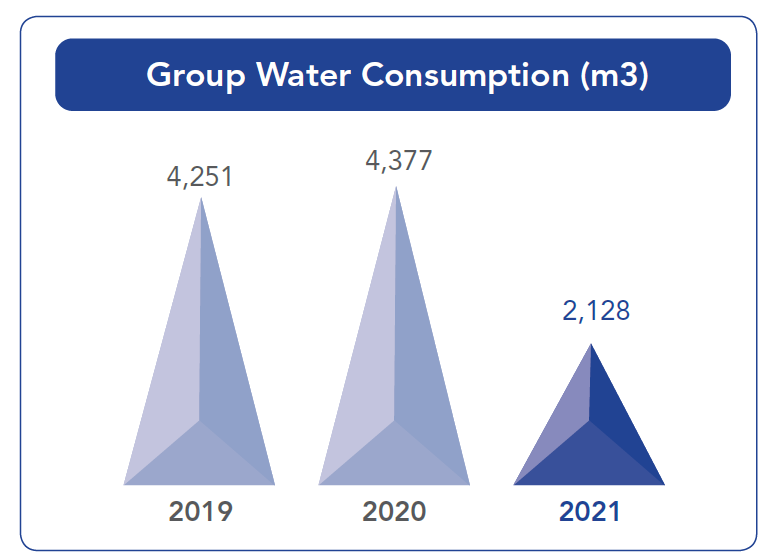Environmental Excellence
We are committed to manage our environmental footprint and provide opportunities to help advance environmental protection. Our commitment involves actions focused on mitigating our carbon emission, managing consumption of natural resources such as water, enhancing our waste management practices and engaging partners across our value chain to build resilience to climate change.
Climate Change
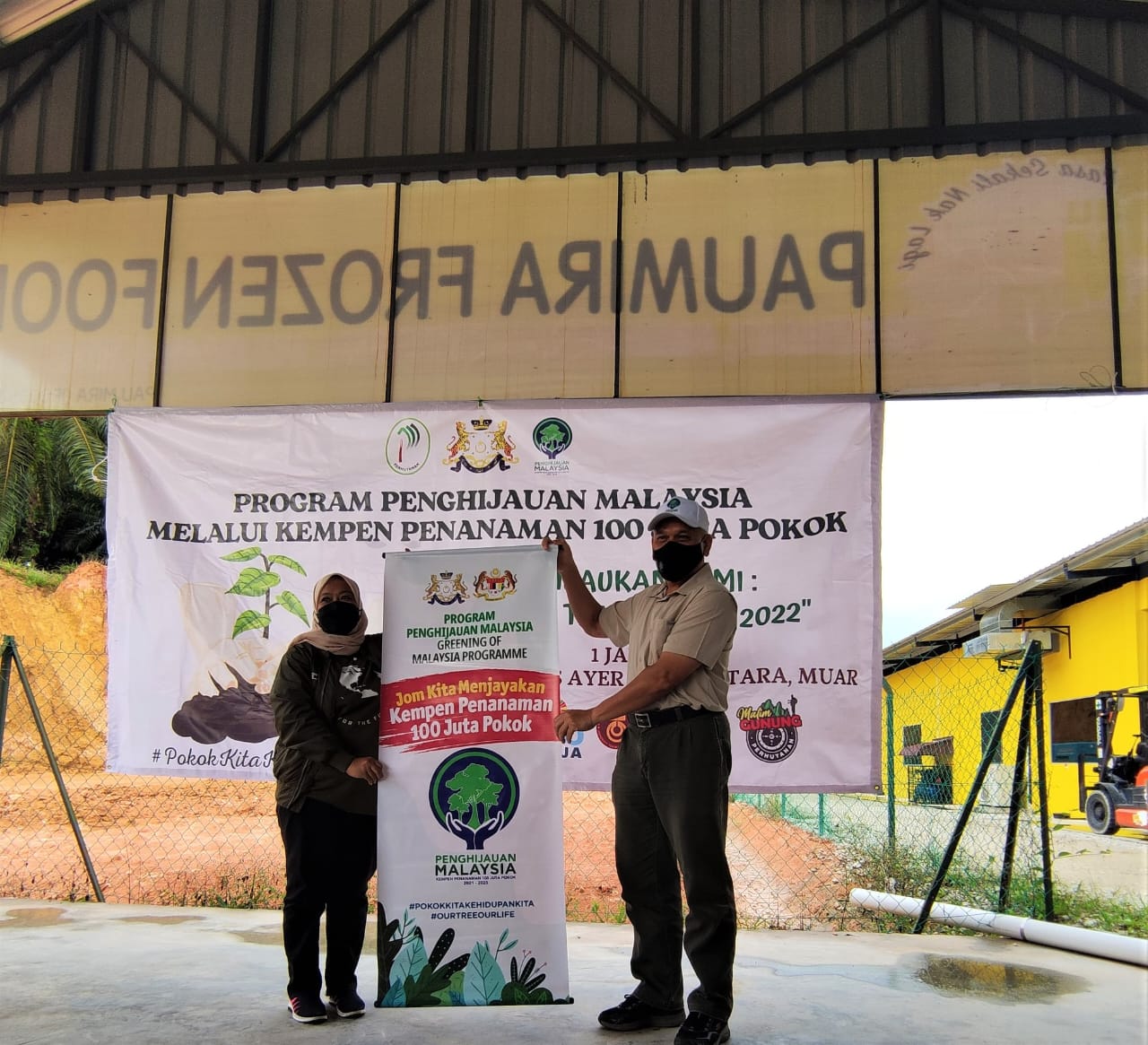
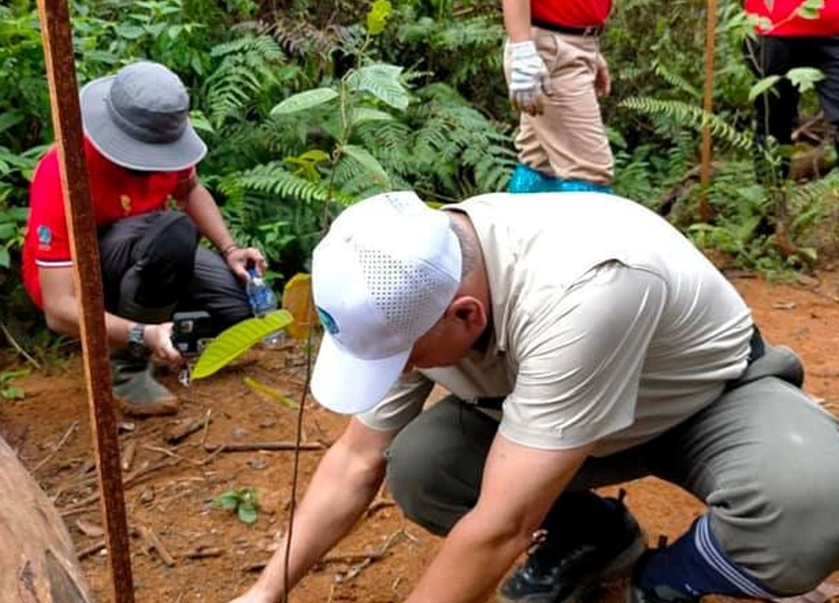
To realise our long-term goal of carbon neutrality by 2050, we took considerable strides in implementing our carbon reduction strategy. A key component of our effort includes partnering with Econinja on the Greening Malaysia Programme 2021-2025 to sequester carbon through tree and coral reef planting. Approximately 300 trees and 50 m2 of coral reefs were planted in FY2021, with our offset performance tracked through Econinja.
Our digital services are reliant on energy consumption, which constitutes the vast majority of our operational greenhouse gas (“GHG”) emissions. During the year in review, we commenced transition of our workload from on premise data centres to cloud-based solutions via Amazon Web Services (“AWS”). This supports our climate related efforts as cloud computing is more energy efficient. Additionally, AWS has committed to renewable energy purchases to power their cloud servers, reducing dependence on fuel-based grid electricity.

We have also begun installing photovoltaic solar panels on our office buildings to increase renewable energy generation and to decrease our reliance on grid electricity. Currently, this initiative is being piloted at our headquarters, and we hope to expand it across the Group in the coming years.
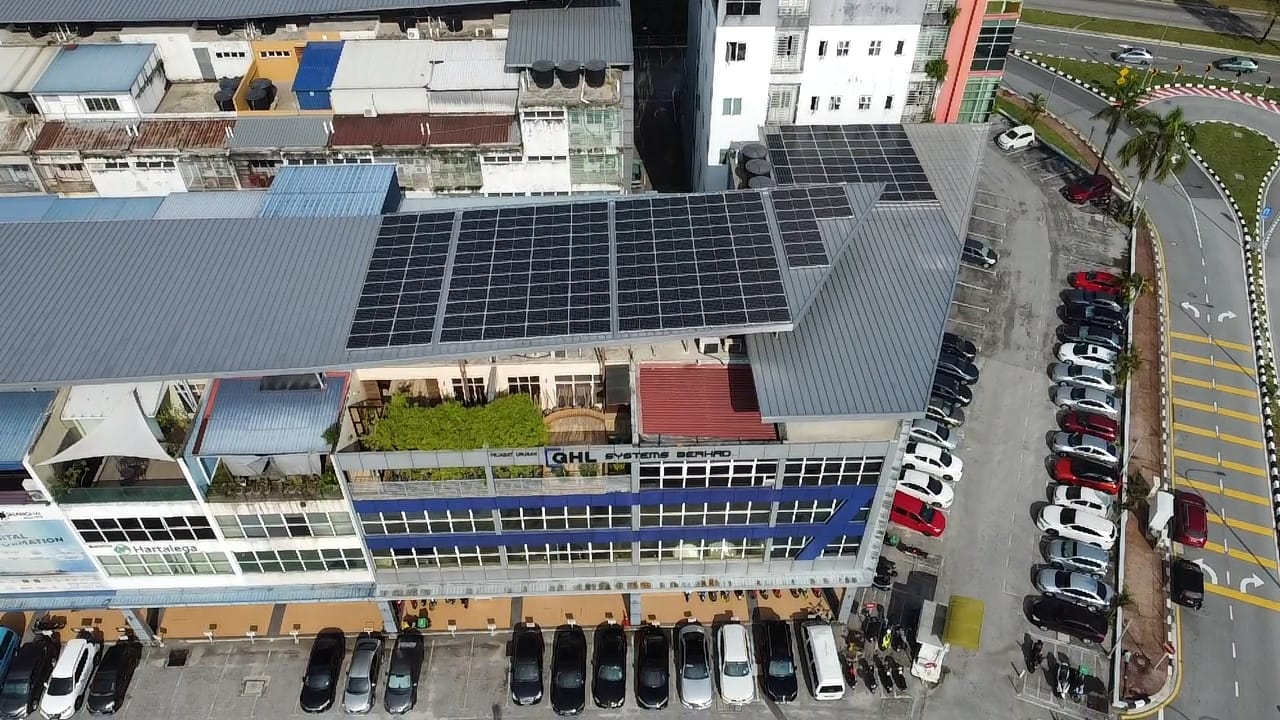
The Group recorded a reduction in overall energy consumption this year, largely due to our offices operating with minimal staff as a result of COVID-19 restrictions.
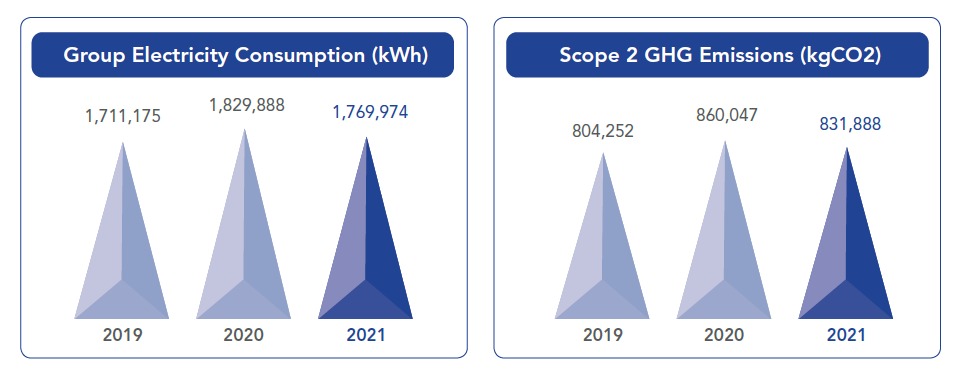
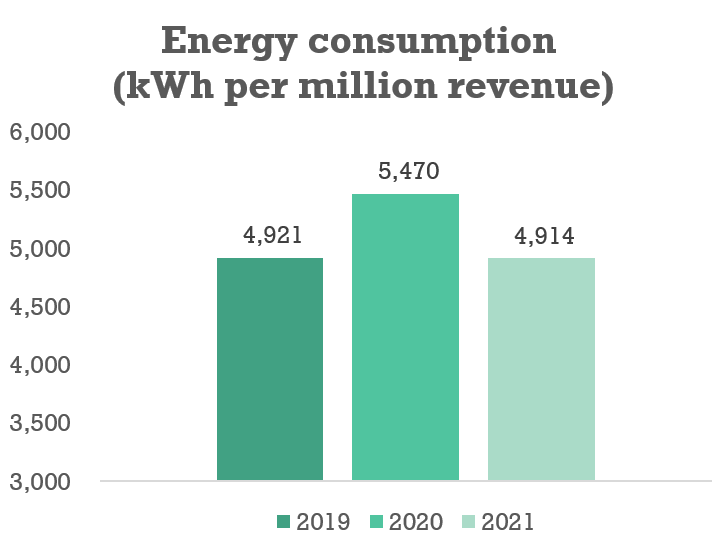
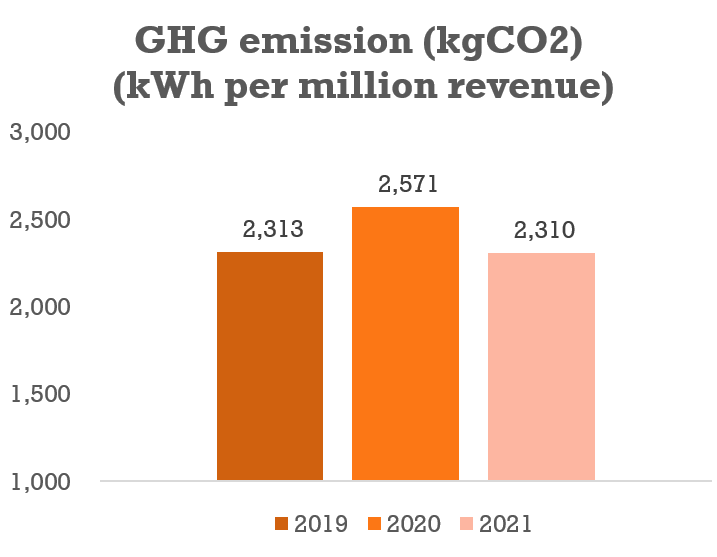
Waste Management
The amount of office waste generated by GHL was negligible in FY2021 as most of our operations were conducted online. This was compounded by our remote-working arrangement where domestic office waste was further reduced compared to previous years.
The majority of our waste generation resulted from our Malaysia, Thailand and Philippines operations. The primary waste recorded were electronic waste (“e-waste”) from obsolete terminals that can no longer be used in our operations. Our formal company procedure is to ensure obsolete terminals are disposed in a responsible manner.
We recognise that partnership with specialised waste disposal authority is crucial to the safe transportation and disposal of hazardous waste. Across our countries of operations, qualified contractors or agencies are appointed for the management and recovery of e-waste, in adherence to each respective national regulation and industry best practices. The collected e-waste will be shredded and utilised in concrete mixture to serve as a partial replacement to coarse aggregates.
Water Stewardship
Water is primarily used as cooling agent in our servers and for domestic use in our office buildings. We remain cognizant of the issue of water security in water scarce regions such as Australia. The Group’s water-related risks are negligible as the size of our Australia operations is minimal, and our other operations are not located in water stressed regions.
Our annual water consumption is tracked across our office building in all countries we operate in. In FY2021, the Group’s total water consumption amounted to 2,128 m3. However, this figure is not reflective of typical consumption as our offices were minimally staffed due to the Group’s remote working arrangements.
